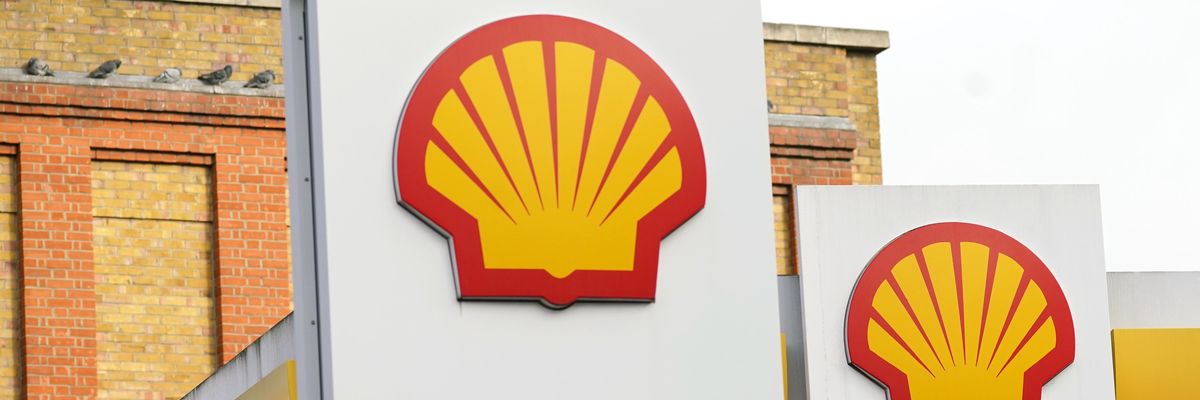Anti-fossil fuel campaigners on Friday urged employees of oil and gas giant Shell to speak out as loudly as possible about their objections to the company's pivot away from renewable energy, after thousands of workers expressed support for an angry open letter penned by two of their colleagues.
On the company's private platform, a letter published by Lisette de Heiden and Wouter Drinkwaard of Shell's low-carbon division garnered 1,000 "likes" and 80,000 views earlier this month and was reported on by Reuters Wednesday.
The two employees wrote that they were "deeply concerned" by an announcement made in June by CEO Wael Sawan that Shell would abandon plans to scale back oil production each year for the rest of the decade in support of its stated goal to become a net zero emissions company by 2050.
De Heiden and Drinkwaard told Sawan and the company's executive committee that Shell's earlier statements about ramping up renewable energy production were "the reason we work here."
While Shell has only devoted 1.5% of its overall spending on solar and wind power projects, the employees said they had been hopeful that the company would carry out its "ambition to be a leader in the energy transition," which leading scientists say must cut global greenhouse gas emissions in half by 2030 in order to limit planetary heating to 1.5°C.
Joanna Warrington, a campaigner with Fossil Free London—which has rallied at Shell's headquarters and events to pressure it to end oil and gas extraction in the U.K.—urged other Shell employees to continue speaking out against the company's fossil fuel projects, and to consider leaving the company as a public statement.
"There's no point waiting for [executives] to grow a conscience," Warrington told Euronews. "If you work at Shell, you can help us."
Clare Farrell, a campaigner with the global grassroots movement Extinction Rebellion, added that leaders at Shell can't be counted on to push the renewable energy transition forward "because they are a fossil fuel company, NOT an energy company."
In addition to reversing plans to scale back oil and gas investments, Shell split up the low-carbon and renewables division De Heiden and Drinkwaard work in and terminated the role of global head of renewables.
Several executives have left the department since the changes were made, Reuters reported.
Shell had been developing offshore wind and other renewable projects in Ireland, France, and India, but announced in recent months it would end those investments.
Last year, a senior safety consultant announced in a viral video message that she would no longer work with Shell, her client for 11 years, citing its "disregard for climate change risks." She also called on others working in the oil and gas industry to "walk away while there's still time."

